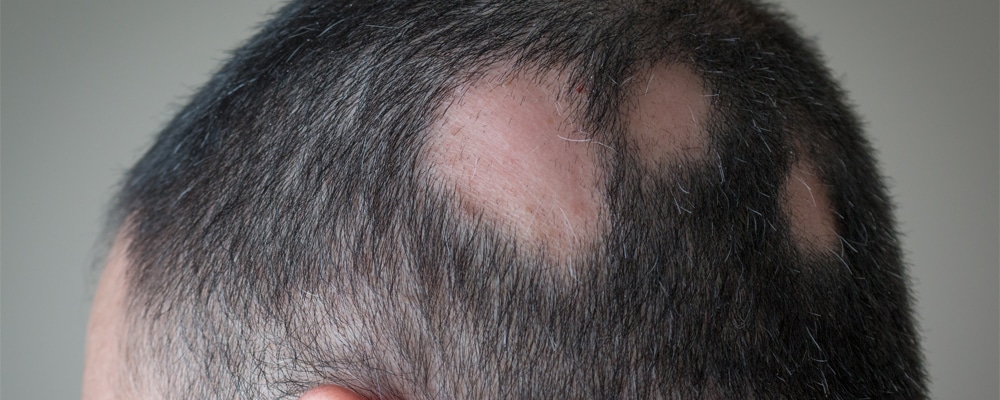Sudden and unexpected patchy hair loss take a toll on a person’s self-esteem, and it can be even more devastating when it is caused because your own body attacks you. But that’s just what Alopecia Areata does: Alopecia areata is an autoimmune condition that causes patchy hair loss. As more patches appear, the hair loss can be unsightly. Sudden hair loss may occur on the scalp, and in some cases the eyebrows, eyelashes, and face, as well as other parts of the body. It can also develop slowly and recur after years between instances
What is Alopecia Areata?
Alopecia areata is an autoimmune condition, which means the body mistakes healthy human cells for foreign bodies and begins to attack. Where a typical person’s immune system protects the body from viruses and bacteria, the immune system of the person with Alopecia Areata will detect their hair cells as foreign and attack them, producing hair loss and damaging the follicle so new hair cannot grow. No one knows exactly what causes Alopecia Areata.
More than just hair loss
For people suffering with Alopecia Areata, the hair loss can lead to poor self-esteem, lack of confidence, and psychological trauma.
“Treatment options for alopecia areata can be difficult to find and dealing with the diagnosis can be emotionally challenging,” said Dr. Reed.
The condition can result in total hair loss, called alopecia universalis, and it can prevent hair from growing back. When hair does grow back, it’s possible for the hair to fall out again. The extent of hair loss and regrowth varies from person to person.
Is there a cure?
There is no cure for Alopecia Areata, and the treatments that are available may not work. It can take time and experimentation to find a treatment, and even the best solutions may only partially treat the condition.
“I have seen a lot of alopecia areata patients and I can tell you there is not one treatment that treats everyone. If you are having difficulty finding a good treatment option for your alopecia areata, consider a clinical trial,” said Dr. Reed.
Are You Suffering from Alopecia Areata?
No one knows what causes Alopecia areata, but family history, other skin conditions, and perhaps even other autoimmune conditions may contribute to the development of Alopecia Areata.
If you have been unsuccessful in finding the right treatment option for alopecia areata, and are seeking affordable hair loss treatment options, or are looking for paid compensation, sign up for a future clinical trial today. With over 25 years of experience in the execution of dermatological clinical trials, our team is highly trained and committed to ensuring that all clinical guidelines are met and that the rights of every patient are always protected. Call 561-948-3116 or fill out the form on this page to learn more about our clinical trial options.

